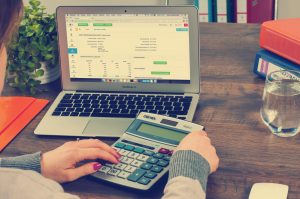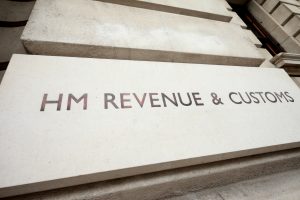Making Tax Digital is a government initiative aimed at moving businesses and individuals (including landlords who own rental properties) towards keeping digital records and reporting digitally to HMRC instead of keeping traditional paper records. The aim is to make it easier and more efficient for businesses and individuals to maintain their tax records and submit relevant information to HMRC.
 Making Tax Digital for VAT – already a requirement
Making Tax Digital for VAT – already a requirement
The first phase, Making Tax Digital for VAT, came into force on April 1st 2019. At this point, VAT registered businesses with an annual taxable turnover of more than £85,000 were required to keep digital VAT records and submit returns using software.
From April 2022 all VAT registered businesses will have to submit digital information (including those with a taxable turnover of less than £85,000) and will have to follow the new Making Tax Digital rules.
Making Tax Digital for Income Tax – comes into force in April 2023
Businesses, the self employed and landlords with annual business or property income of over £10,000 will have to comply with the new Making Tax Digital for Income Tax rules from their next accounting period starting on or after April 6th 2023. This means they will have to keep income and expense records digitally and submit their tax return directly to HMRC using compatible software.
Incorporated businesses
Eventually, Making Tax Digital will be extended to incorporated businesses that pay Corporation Tax but no date for this has yet been announced.
The government has published further information on its website at:
https://www.gov.uk/government/publications/making-tax-digital/overview-of-making-tax-digital
 What should landlords do next?
What should landlords do next?
Many landlords will already be submitting their tax returns digitally to HMRC and therefore these deadlines will probably have little impact on their business.
However, if you do not yet submit your tax return digitally or keep digital records, there are a couple of steps you can take now to prepare yourself and your business for the new digital record keeping system.
Bring accounting periods for different businesses in line with each other
Next, if you own several businesses with different accounting periods (perhaps if you run a self-employed business alongside operating buy-to-let properties), consider bringing these accounting periods in line with each other to reduce the admin involved in the new reporting procedures.
How can we help?
We already complete and submit tax returns on behalf of many of our clients and we will, of course, continue to offer this service so that our landlords can easily fulfil the requirements of the new Making Tax Digital system.
If you would like to find out more about our tax return service, or any other aspect of our property management services, please get in touch.
International offices















 Making Tax Digital for VAT – already a requirement
Making Tax Digital for VAT – already a requirement What should landlords do next?
What should landlords do next?